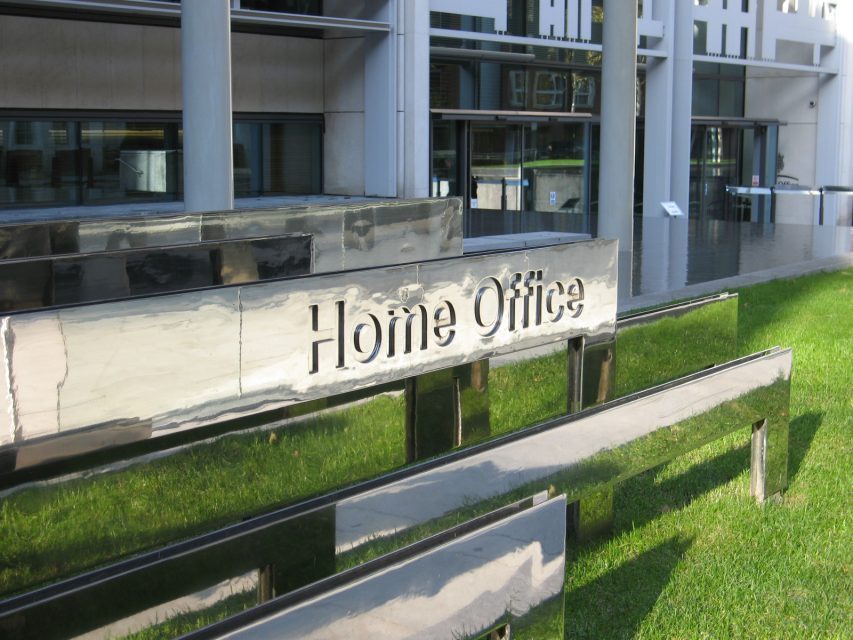The chair of regulatory body the UK Statistics Authority has written to the leaders of UK political parties to remind them of their responsibilities to use information clearly and transparently
The UK’s stats watchdog has urged political leaders to commit to “ensuring the appropriate and transparent use of statistics” in their general election campaigns.
In a letter to the leaders of the UK’s political parties, UK Statistics Authority chair Sir Robert Chote stressed that stats should be used in debates to “enhance understanding of the topics being debated and not be used in a way that has the potential to mislead”.
The letter – which came shortly after row over prime minister Rishi Sunak’s claims about Labour’s tax plans – reminded politicians of the principles of “intelligent transparency” set out by the Office for Statistics Regulation: UKSA’s regulatory arm.
The principles, which are designed to help government departments and other public bodies use stats responsibly day to day, demand that statistical claims and statements are: based on data to which everyone has equal access; clearly and transparently defined; and for which there is appropriate acknowledgement of any uncertainties and context that people need to be aware of if they are realistically to interpret what they mean.
Related content
- ‘Simple hygiene’ – stats watchdog flags up Whitehall transparency gaps
- Met Police creates head of data rights post to ‘ensure transparency and build trust’
- MPs urge better use of people data to create ‘transparency and efficiency improvements within government’
“Adhering to these principles is just as important when parties are using statistics and making quantitative claims to help their candidates seek public office,” Chote said. “Needless to say, the use of statistics in political communication is often necessarily succinct and devoid of lengthy explanation. Under these circumstances, a good rule of thumb is to consider how a reasonable person would interpret the statement being made and ensure that this is not likely to be misleading in the absence of additional information.”
He used the letter, which was also copied to cabinet secretary Simon Case, to warn candidates that the OSR will be monitoring the use of statistics in public debate throughout the general election campaign.
“We will be willing to highlight publicly where statements draw on statistics and data that are not published or are presented in a misleading way,” he said.
Chote’s letter also stressed the importance of making sure that any public statements made by the governing party during the pre-election period “refer only to official statistics and data that are already in the public domain and not those to which ministers have privileged access”.
He suggested that adhering to the OSR’s principles is in campaigners’ best interests, by avoiding the need for subsequent clarifications and “possible loss of trust in future claims, either later in the campaign or in government”.





May I request more information on the subject? All of your articles are extremely useful to me. Thank you!
벼룩시장 신문그대로보기 (구인구직, 부동산) 벼룩시장 신문그대로보기 바로가기 그리고 지역별 벼룩시장 종이신문그대로보기 방법 (구인구직, 부동산) 알아볼게요. 교차로신문 같이 벼룩시장은 지역별 일자리, 구인구직, 부동산 등 다양한 정보를 제공해요. 교차로신문그대로보기 바로가기는 아래에서 확인하고, 오늘은 벼룩시장 신문그대로보기 바로가기 그리고 사용법 섹스카지노사이트
I抎 must examine with you here. Which isn’t something I often do! I take pleasure in studying a post that can make people think. Additionally, thanks for allowing me to remark!
Nice post. I used to be checking continuously this weblog and I’m inspired! Extremely useful information particularly the remaining part 🙂 I care for such info a lot. I was seeking this certain information for a very lengthy time. Thanks and good luck.
https://download-install.com/tag/트위터20다운로드
https://kemongsa.co.kr/excel/
https://dnolife.net/software/samsungdex/
강남안마시술소중계업체
https://honeytipit.tistory.com/tag/익산교차로20부동산
https://kakaotaxi.dasgno.com/kakao-pay
https://bestkkultip.tistory.com/29
벼룩시장 신문그대로보기 (구인구직, 부동산) 벼룩시장 신문그대로보기 바로가기 그리고 지역별 벼룩시장 종이신문그대로보기 방법 (구인구직, 부동산) 알아볼게요. 교차로신문 같이 벼룩시장은 지역별 일자리, 구인구직, 부동산 등 다양한 정보를 제공해요. 교차로신문그대로보기 바로가기는 아래에서 확인하고, 오늘은 벼룩시장 신문그대로보기 바로가기 그리고 사용법 섹스카지노사이트